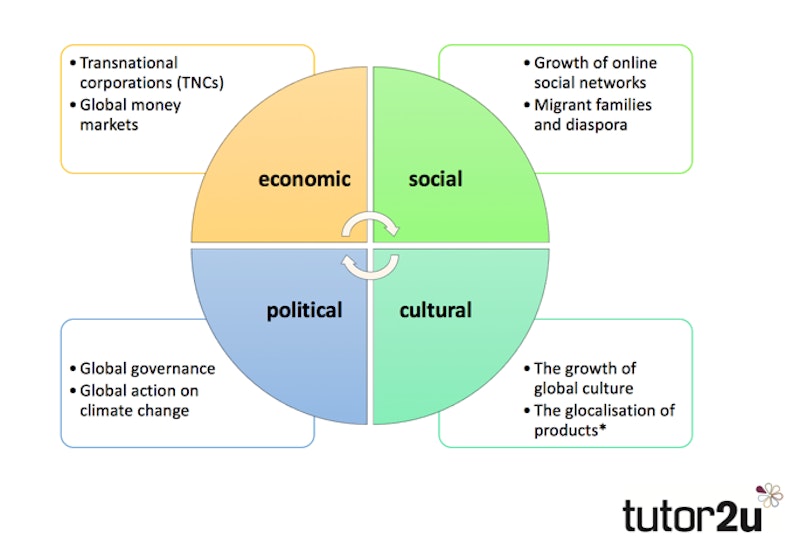Study Notes
What is Globalisation?
- Level:
- AS, A-Level, IB
- Board:
- AQA, Edexcel, OCR, IB, Eduqas, WJEC
Last updated 26 Jul 2017
Globalisation has many interpretations, which can be defined in various ways:
The IMF (International Monetary Fund) defines globalisation as: “the increasing integration of economies around the world, particularly through the movement of goods, services, and capital across borders. It refers to an extension beyond national borders of the same market forces that have operated for centuries at all levels of human economic activity—village markets, urban industries, or financial centres.” This definition emphasises that globalisation is driven primarily by money and markets.
The Trade Union Congress (TUC) sees globalisation as: “A rapid and huge increase in the amount of economic activity taking place across national boundaries (which) has had an enormous impact on the lives of workers and their communities everywhere. The current form of globalisation, with the international rules and policies that underpin it, has brought poverty and hardship to millions of workers, particularly those in developing and transition countries.” This definition emphasises the way globalisation can have negative as well as positive impacts on societies.
In its material for schools, the World Bank sums up globalisation as follows: “It might mean sitting in your living room in Estonia while communicating with a friend in Zimbabwe. It might mean taking a Bollywood dance class in London. Or it might be symbolized in eating Ecuadorian bananas in the European Union.” This account emphasises that there are non-economic dimensions to globalisation too, including social, cultural and political interactions on a global scale.
The illustration below helps illustrate the complexity of globalisation.

You might also like

Economist interactive guide to megacities
7th February 2015
Globalisation and Interdependency
Study Notes
Global Governance - A-Level MCQ Quiz
Quizzes & Activities
The G7 agree on a common global corporation tax
5th June 2021
Daily Email Updates
Subscribe to our daily digest and get the day’s content delivered fresh to your inbox every morning at 7am.
Signup for emails